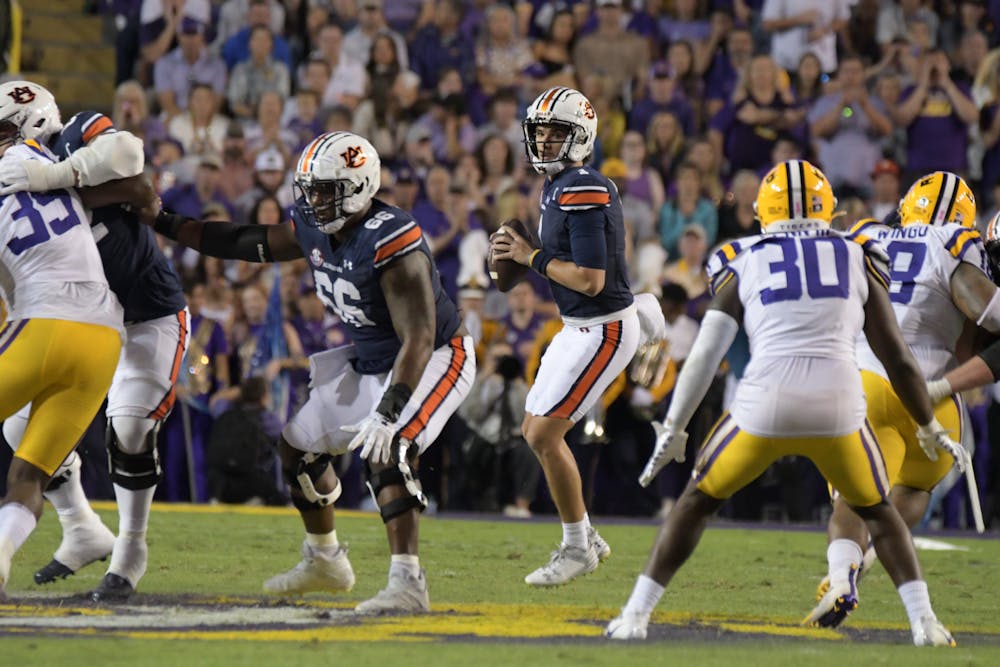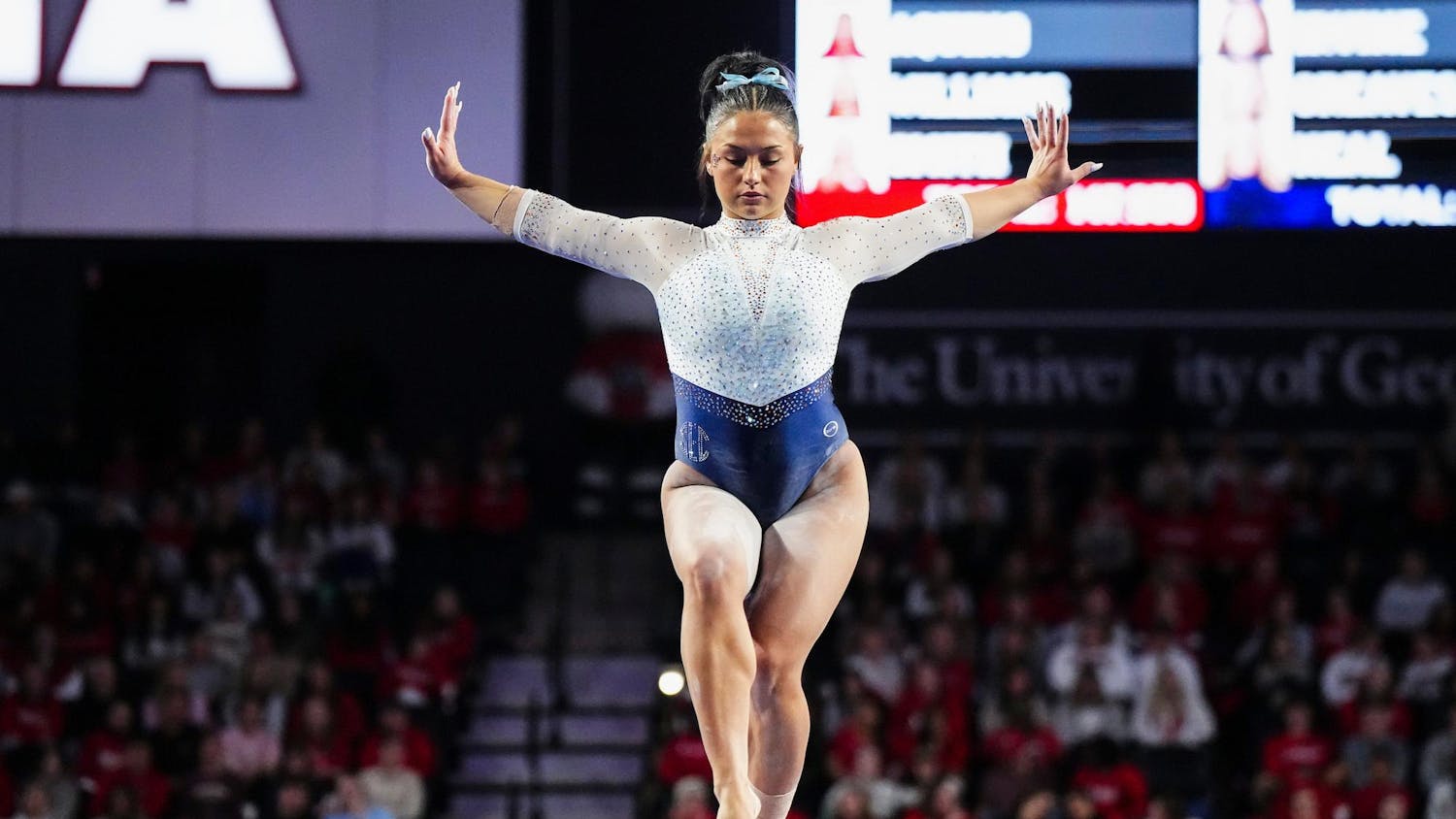In the three games prior to LSU’s game against Auburn, the Fighting Tigers gave up a combined 1,659 yards to Arkansas, Ole Miss and Missouri — an average of 553 yards per game. When Auburn visited Tiger Stadium, however, it was a different story. The visiting Tigers mustered just 293 yards of offense, the second-fewest LSU has given up in a game this season.
LSU came into the game ranked No. 121 nationally in total defense, giving up 445.7 yards per game this season. Auburn only gained just under two-thirds of what LSU allowed on average.
LSU’s 94th-ranked rush defense, which gave up an average of 160.3 yards on the ground this season, held Auburn’s 19th-rated rush offense to 139 rush yards, well below its season average of 202 yards per game.
Despite being below its own season average, Auburn rushed for more yards than four of LSU’s other opponents. Only Ole Miss, which rushed for 317 yards against LSU, and Grambling State, which ran for 163 at Tiger Stadium, ran the ball better against the Bayou Bengals.
In a matchup of weaknesses, Auburn’s No. 120 pass offense against LSU’s No. 121 pass defense, the porous defense of LSU won out, holding Auburn to 154 yards through the air.
Only Mississippi State, which passed for 107 yards in a loss, had fewer passing yards against LSU. Four LSU opponents passed for greater than 250 yards, but Auburn’s lowly-rated pass offense could not find success in Baton Rouge, even being held below its season average of 156.2 pass yards per game, which was the 11th-worst passing mark in the nation.
Of note: 87 of Auburn’s 154 passing yards came in three completions — a 15-yard pass from Thorne to Camden Brown, a 39-yard pass from Ashford to Brandon Frazier and a 32-yard pass from Thorne to Jay Fair. Auburn’s other 12 completions combined to gain 67 yards, or just under 5.6 yards per catch in those 12 successful passes. LSU came into the game giving up 13.38 yards per completion.
Payton Thorne and Robby Ashford were a combined 15-of-27 passing, though Ashford completed three of the four passes he attempted. The 15 completions were the second-fewest LSU has allowed in a game — Mississippi State completed 12 passes against the Fighting Tigers.
For comparison, in week six, Missouri quarterback Brady Cook completed 30 passes, double the total of Thorne and Ashford, and the week before, Jaxson Dart of Ole Miss completed 26 passes against LSU.
Statistically, the challenges only get tougher for the Auburn offense from here. The worst-ranked total defense remaining on Auburn’s schedule is Vanderbilt at No. 107 — 14 places above LSU. The toughest statistical defense Auburn has left to face is Alabama, a team that gives up 298.5 yards per game, which ranks 18th nationally and is 147.2 yards per game fewer than the LSU defense.
As the second half of SEC play begin, the Auburn offense sits at 13th in the conference, only ahead of Arkansas. Statistically, the LSU game represented one of the weakest defenses on Auburn’s schedule ths season and one of the best opportunities for a breakout offensive game. Instead, the offense’s struggles, especially in the passing game, lived on in the stadium known as “Death Valley.”
Do you like this story? The Plainsman doesn't accept money from tuition or student fees, and we don't charge a subscription fee. But you can donate to support The Plainsman.
Matthew is a senior from Huntsville, Alabama, majoring in journalism. He started with The Plainsman in fall 2021.
Twitter: @mattwallaceAU





